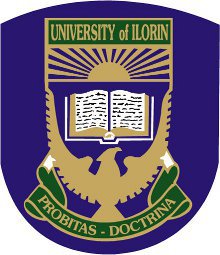Commerce Keypoints; Money; This study material is suitable for students sitting for the following exams: JAMB, WAEC, NECO, GCE, IJMB, and JUPEB.
Study other commerce keypoints here
Commerce Keypoints; Money
Money is the lifeblood of commerce, serving as the universal medium of exchange that facilitates the transfer of goods and services. In this comprehensive article, we will explore the fascinating world of money, diving into its evolution, forms and qualities, and its indispensable functions. Let’s embark on this journey to demystify the essence of money in commerce.
Evolution of Money
Money’s history is a captivating journey, evolving from primitive systems to sophisticated financial mechanisms. It began with barter, a system where goods were exchanged directly for other goods. The limitations of barter, such as the double coincidence of wants and the divisibility of commodities, led to the creation of commodity money. Commodity money, like gold and silver, had intrinsic value and was widely accepted.
As economies grew, carrying physical commodities became impractical, giving rise to representative money. This form of money was backed by a commodity stored in a secure location, and people could exchange it for the underlying asset. Later, representative money evolved into fiat money, which has no intrinsic value but is declared legal tender by a government.
In recent years, digital currencies and cryptocurrencies like Bitcoin have emerged, further transforming the landscape of money. These digital forms have no physical representation but exist as entries in a digital ledger.
Forms and Qualities of Money
i) Forms of Money: Money exists in various forms, including:
- Cash: Physical currency issued by governments, like coins and banknotes.
- Digital Money: Represented in electronic form, such as bank deposits, debit cards, and electronic transfers.
- Cryptocurrency: Digital currencies using cryptography for security, like Bitcoin and Ethereum.
ii) Qualities of Money: Money should possess specific qualities, including:
- Durability: It should withstand wear and tear.
- Portability: Easy to carry and transfer.
- Divisibility: Capable of being divided into smaller units.
- Uniformity: Each unit should be the same in value and quality.
- Acceptability: Widely accepted as a medium of exchange.
- Limited Supply: To maintain value, money should have controlled issuance.
Functions of Money
Money serves several vital functions in an economy:
i) Medium of Exchange: Money facilitates the exchange of goods and services, eliminating the need for barter. Buyers and sellers can easily transact using a universally accepted medium.
ii) Unit of Account: Money provides a common measure of value, allowing individuals and businesses to compare prices, track expenses, and make informed financial decisions.
iii) Store of Value: Money preserves its value over time, enabling people to save for future needs. This function relies on money’s stability and limited supply.
iv) Standard of Deferred Payment: Money allows individuals to enter into contracts specifying future payments. This helps with financial planning and lending.
v) Measure of Value: Money acts as a standard measure, allowing people to assess the value of different goods and services and make informed economic decisions.
FAQs – Answers in Depth
i) Discuss the Origin of Money: Money’s evolution traces back to the limitations of barter systems and the need for a more efficient medium of exchange. It transitioned from commodity money to representative and fiat money, with digital currencies emerging in the modern era.
ii) Analyse the Forms and Qualities of Money: Money exists in various forms, including cash, digital money, and cryptocurrencies. Qualities of money include durability, portability, divisibility, uniformity, acceptability, and limited supply.
iii) Appraise the Functions of Money: Money serves as a medium of exchange, unit of account, store of value, standard of deferred payment, and measure of value. These functions are essential for the smooth operation of economies and financial systems.







